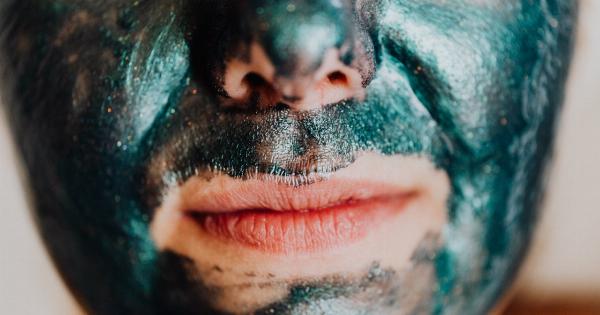Having dry skin can be uncomfortable and frustrating. Itchy, flaky skin can make you feel self-conscious and can even lead to more serious skin conditions if left untreated.
Luckily, there are several effective remedies that can help to alleviate and prevent skin dryness.
1. Moisturize Regularly
One of the most important steps in combating skin dryness is to moisturize regularly. Choose a moisturizer that is specifically formulated for dry skin, as it will contain ingredients that help to lock in moisture.
Apply the moisturizer immediately after showering or bathing to lock in the hydration.
2. Use a Humidifier
Dry indoor air can contribute to skin dryness. Using a humidifier can help to add moisture back to the air, which can prevent your skin from becoming dry and itchy.
Place a humidifier in your bedroom or any other room you spend a lot of time in, and make sure to clean it regularly to avoid the growth of bacteria and molds.
3. Avoid Hot Showers and Baths
While a hot shower or bath may be soothing, it can strip your skin of its natural oils, leading to dryness. To keep your skin hydrated, opt for lukewarm water instead.
Limit your bathing time to no more than 10 minutes, and use gentle, fragrance-free cleansers to avoid further irritation.
4. Exfoliate Regularly
Exfoliating your skin can help to remove dead skin cells and promote the growth of new, healthier skin. However, it’s important to choose a gentle exfoliator that won’t further dry out your skin.
Look for products that contain natural exfoliants, such as sugar or oatmeal. Exfoliate your skin once or twice a week to keep it looking fresh and hydrated.
5. Drink Plenty of Water
Proper hydration starts from the inside out. Drinking an adequate amount of water throughout the day can help to keep your skin hydrated and prevent dryness.
Aim to drink at least 8 glasses of water per day, and try to limit your consumption of caffeine and alcohol, which can dehydrate your body.
6. Protect Your Skin from Harsh Weather Conditions
Extreme weather conditions, such as cold winds and dry heat, can wreak havoc on your skin. To protect yourself from these elements, make sure to dress appropriately and wear adequate sunscreen.
When heading outdoors during the winter months, cover exposed skin with scarves, gloves, and hats to shield it from the cold air. During the summer months, apply sunscreen generously and regularly to prevent sunburn and skin damage.
7. Choose the Right Fabrics
Some fabrics can further irritate dry skin. Opt for breathable fabrics, such as cotton and silk, that allow your skin to breathe. Avoid wearing rough or tight clothing, as it can cause friction and lead to dryness.
Additionally, wash your clothes with mild, fragrance-free detergents, as harsh chemicals can aggravate dry skin.
8. Eat a Balanced Diet
The food you eat plays a significant role in the health of your skin. Eat a balanced diet that includes foods rich in essential fatty acids, antioxidants, and vitamins. These nutrients can help to nourish and hydrate your skin from within.
Include foods such as avocados, nuts, fatty fish, berries, and leafy green vegetables in your diet to promote healthy, hydrated skin.
9. Avoid Harsh Skincare Products
Some skincare products contain harsh ingredients that can strip away your skin’s natural moisture. Avoid products that contain alcohol, fragrances, and sulfates, as these can further dry out your skin.
Instead, opt for gentle, hypoallergenic products that are specifically formulated for dry and sensitive skin.
10. Consult a Dermatologist
If your skin dryness persists or worsens despite using home remedies, it may be time to consult a dermatologist. They can assess your skin condition and provide personalized recommendations and treatments to address your specific concerns.
Effective Remedies for Discolored Teeth
Discolored teeth can lower your self-confidence and make you hesitant to smile. However, there are several effective remedies available that can help to restore your teeth’s natural whiteness and brightness.
1. Professional Teeth Whitening
Professional teeth whitening is one of the most effective and quickest ways to remove tooth discoloration. Dentists use stronger whitening agents that can effectively lighten the shade of your teeth in just one session.
They can also provide customized trays for at-home whitening maintenance.
2. Whitening Toothpaste
Whitening toothpaste can help to remove surface stains and prevent new ones from forming. Look for toothpaste products that contain ingredients like hydrogen peroxide or baking soda, as these have been shown to be effective in teeth whitening.
However, it’s important to note that whitening toothpaste can only lighten the shade of your teeth by a few shades.
3. Oil Pulling
Oil pulling is an ancient Ayurvedic practice that involves swishing oil, such as coconut oil or sesame oil, around your mouth for several minutes. This technique can help to remove stains and bacteria from your teeth, resulting in a brighter smile.
Oil pulling should be done on a regular basis for noticeable results.
4. Avoid Stain-Causing Foods and Beverages
Certain foods and beverages can contribute to tooth discoloration. Limit your consumption of staining agents like coffee, tea, red wine, and dark-colored berries.
If you do consume these foods or beverages, rinse your mouth with water afterward to minimize their staining effects.
5. Dental Veneers
Dental veneers are thin, tooth-colored shells that are placed over the front surface of your teeth. They can effectively cover up tooth discoloration and give you a perfectly white smile.
However, getting dental veneers is a more permanent and costly solution compared to other remedies.
6. Natural Teeth Whitening Remedies
There are several natural remedies that can help to whiten your teeth. For example, brushing with baking soda can gently remove surface stains.
Additionally, rubbing the inner side of a banana peel or using activated charcoal can also help to lighten tooth discoloration. However, these remedies should be used with caution, as they may not provide immediate results and shouldn’t replace regular dental care.
7. Regular Dental Cleanings
Routine dental cleanings can help to remove built-up plaque and tartar, which can contribute to tooth discoloration. Make sure to visit your dentist regularly for professional cleanings and maintain good oral hygiene habits at home.
8. Avoid Smoking
Smoking is one of the leading causes of tooth discoloration. The compounds found in tobacco can stain your teeth and cause them to turn yellow or brown over time.
Quitting smoking can not only improve the appearance of your teeth but also your overall oral health.
9. Teeth Whitening Strips or Gels
Over-the-counter teeth whitening strips or gels can help to lighten tooth discoloration. These products usually contain hydrogen peroxide or carbamide peroxide, which can effectively whiten your teeth.
However, it’s important to follow the instructions carefully and avoid overusing these products, as they may cause tooth sensitivity.
10. Maintain Good Oral Hygiene
Practicing good oral hygiene is essential for maintaining white and healthy teeth. Brush your teeth at least twice a day with a whitening toothpaste, floss daily to remove plaque between your teeth, and rinse with an antibacterial mouthwash.
Regularly cleaning your tongue can also help to prevent bacteria buildup, which can contribute to tooth discoloration.































